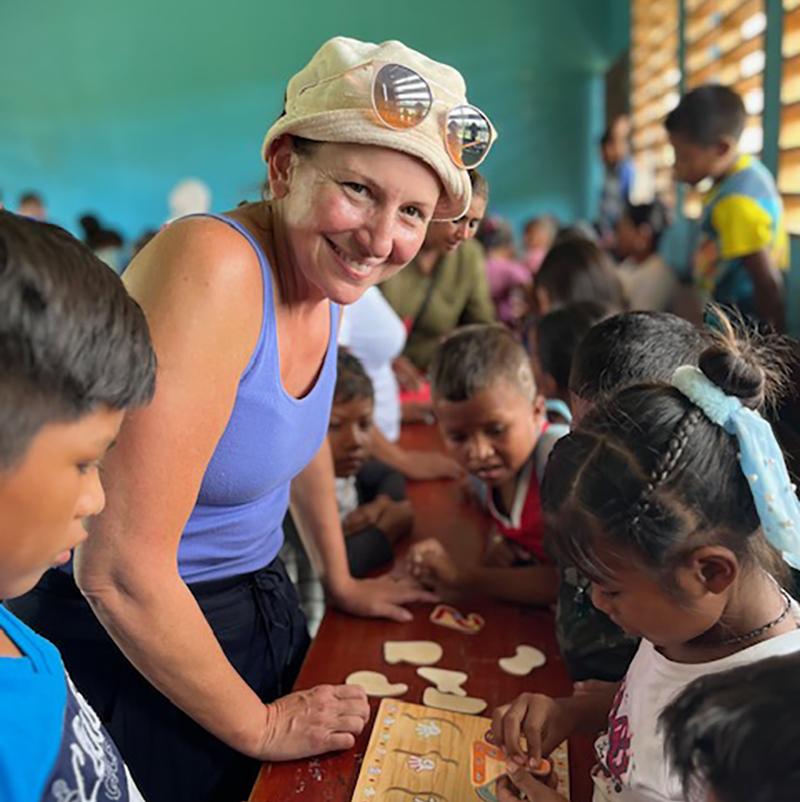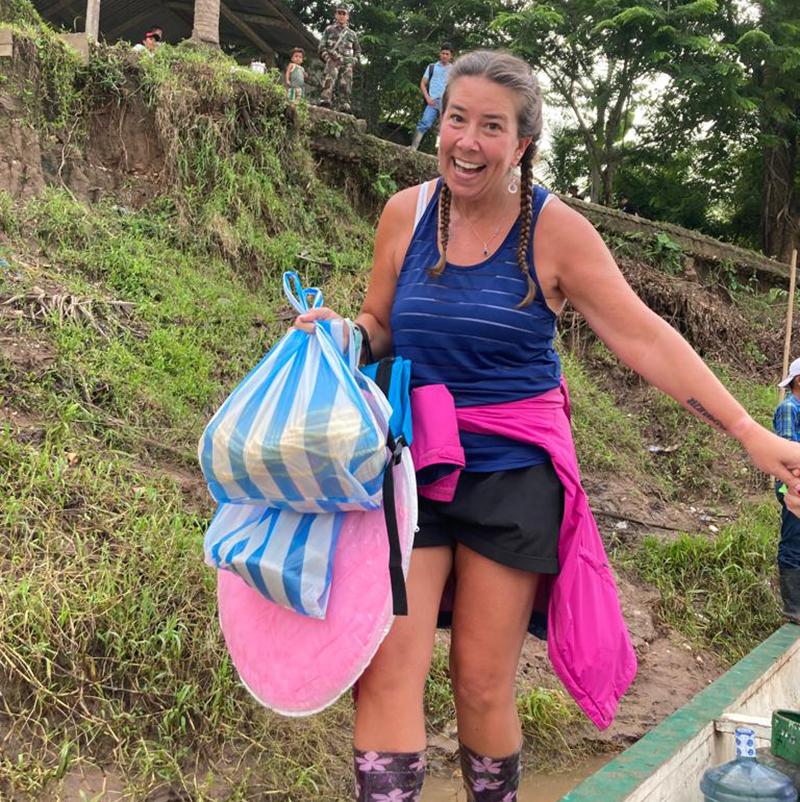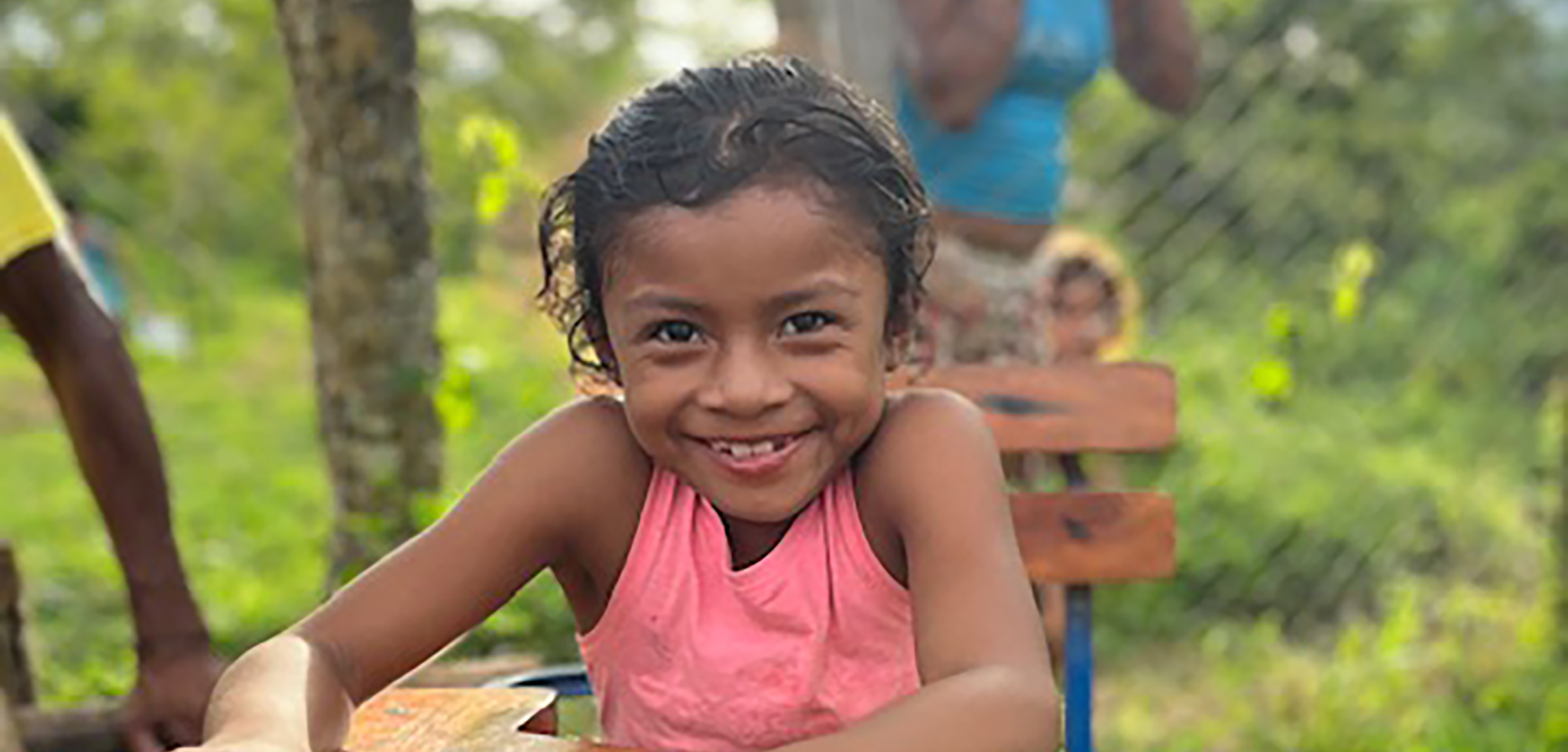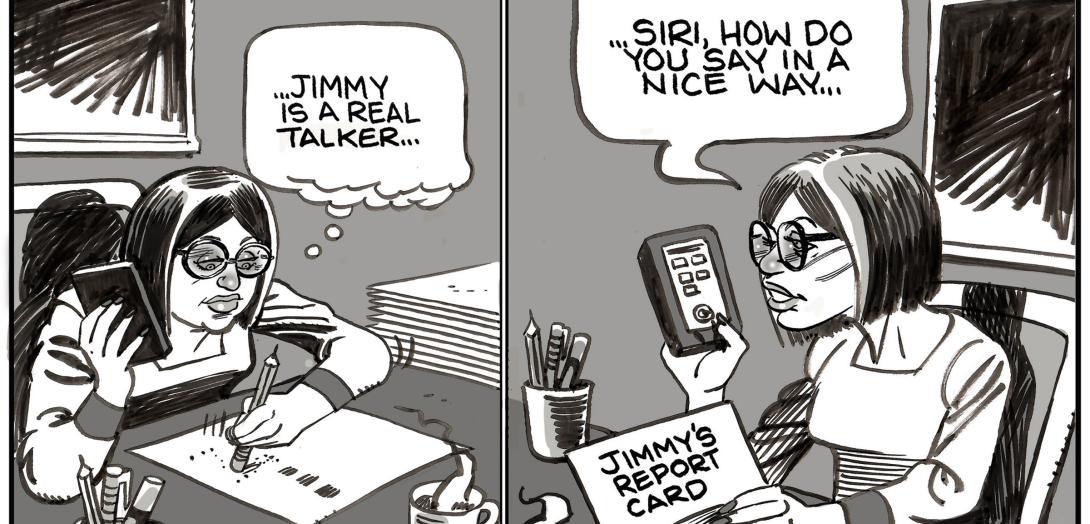Crammed into dugout canoes piled high with boxes of supplies, covered head to toe for protection from the tropical sun, a group of Alberta teachers endures an eight-hour trek on a winding river frequented by birds, turtles and crocodiles into a remote reserve in Nicaragua.
This is a typical beginning to the Change for Children experience, which teachers describe as among the most challenging and rewarding of their careers.
“I describe the trip as opposites: beautiful and difficult,” says Holly Emes, a teacher and counsellor at W.P Wagner High School in Edmonton, one of eight Alberta teachers who participated in the July trip led by the charity Change for Children in partnership with the Alberta Teachers’ Association. Change for Children, based in Edmonton, has been working for almost 50 years to improve the quality of life in some of the most remote areas of the world.
The ATA paid for airfare, accommodation, transport and translation, and the teachers raised funds to help bring school supplies and their expertise to the Bosawas Reserve in northern Nicaragua. In the Indigenous territory of the Miskito, this region is home to illiteracy rates that reach 80 per cent.
“The rain forest is stunningly beautiful,” says Emes. “It’s like travelling back in time. There are thatched-roof huts. Kids are running around in underwear playing in the water. Women are washing clothes and dishes in the river.”
The teacher brigade stayed in one village, San Andrés, for eight days, and travelled up and down the river to visit seven communities.
Five places had basic school buildings with solar power and access to a digital-learning system, while the other two had just a thatched roof and bamboo rails for a school, and the teachers had only a piece of paper and a pen.
“The kids were all equally happy,” says Tara Ong-Padilla, a Spanish teacher at Springbank Community High School in the Rocky View School district west of Calgary.
“The teachers are doing the best that they can with what they have. They know knowledge is power and they are working to break the cycle of poverty.”
The Alberta teachers brought a few supplies with them but bought the bulk in the capital of Managua to save shipping charges. “We put our brains together,” says Ong-Padilla, to find items that were reusable and could be used in multiple ways. That included alphabet foam letters, magnifying glasses, and dry erase markers with plastic folios so that worksheets could be used over and over again.
The students were so excited when they saw the supplies and just dove straight in.
“Some had never seen a game before, such as Go Fish or doing patterns with an alphabet game,” says Ong-Padilla. “We gave every school a soccer ball and that was a hit.”
Despite the vast differences in circumstances, both Alberta teachers found they related to the teachers working in the rain forest.
“We have a common bond. We share the goal to make life better through education,” says Ong-Padilla.
“Honestly, it was incredible to learn the general concerns were similar to ours. The issues are the same: not enough time, can’t reach all our kids, struggle to keep up with technology,” says Emes. “Trying to provide a quality education, to me, that’s what binds us.”
This fall, the teachers shared details about their trip with their Alberta students. Emes gave a presentation to her school’s Interact Rotary Club, and that group decided afterwards to fundraise for Change for Children.
Indigenous insight
Alberta students were also able to hear from Indigenous Miskito people directly, as a group of three residents of the Bosawas Reserve later visited five of the Alberta schools that had sent a teacher to Nicaragua.
These visits had a big impact on the students.
“It gave the sense of someone else’s culture and life,” says Ong-Padilla.
“It pulls on your heart strings and helps the students see they can make a difference, maybe even if it’s just locally. I think it helped pique their curiosity.”
Both teachers are also grateful for the opportunity to be part of a brigade to Bosawas.
“It has lots of value, I think it’s amazing,” says Emes.
“It was a phenomenal experience,” says Ong-Padilla. “You bring that experience back, versus just reading about it. I would do it again, for sure.” ❚
Applications open
Change for Children is now accepting applications for the summer of 2024. Information is available at teachers.ab.ca. The application deadline is Dec. 15.





